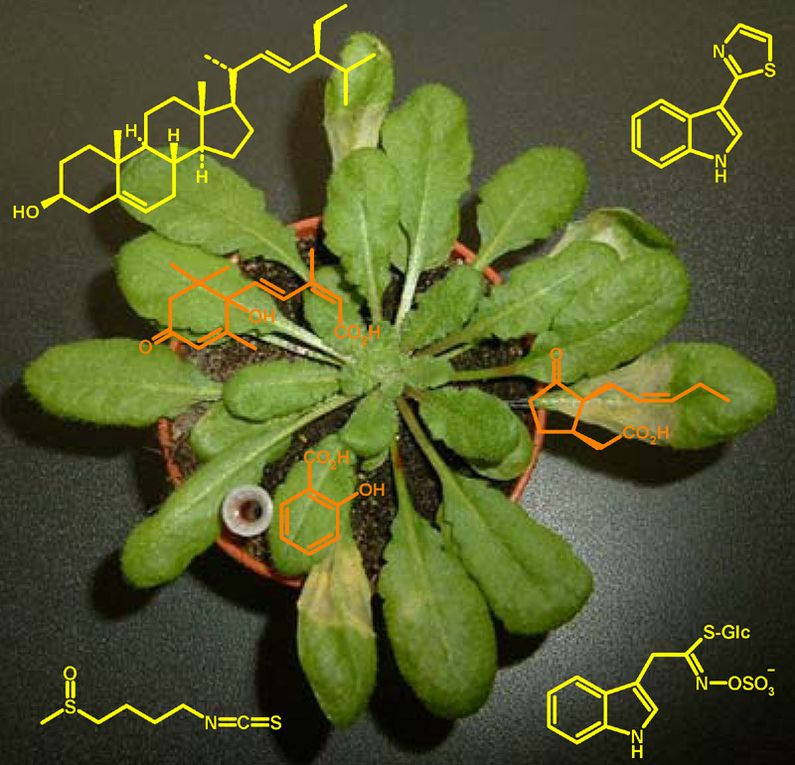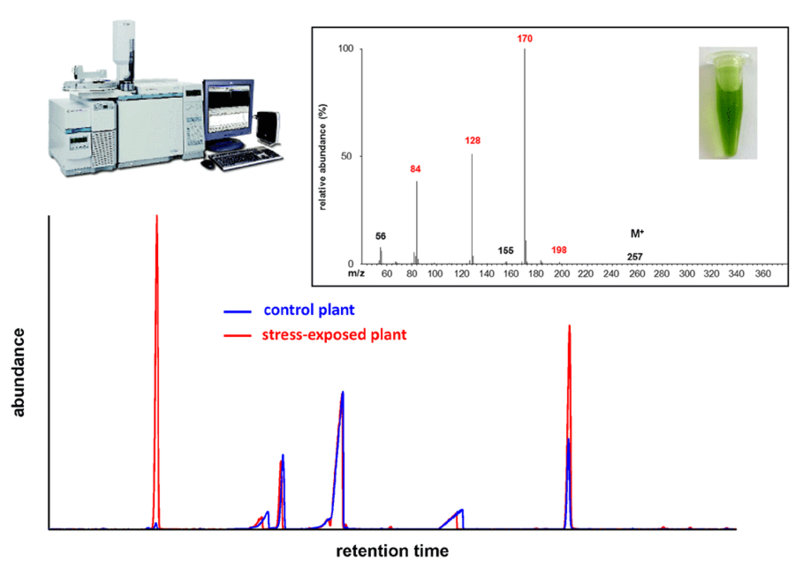Prof. Dr. Jürgen Zeier
Research focus
Many primary and secondary plant metabolites are not constitutively produced during plant growth and development. Instead, their biosynthesis is triggered upon perception of abiotic or biotic stress exposure. We aim to understand how stress-inducible metabolic pathways have evolved at the metabolic, biochemical and genetic levels. The composition of stress-inducible metabolites will therefore be compared in a phylogenetic framework that covers selected Arabidopsis thaliana ecotypes and selected Arabidopsis relatives within the Brassicaceae family. This will allow investigating phylogenetic variations within the biosynthesis of plant stress hormones and regulatory metabolites. Quantitative assessment of marker gene expression downstream of hormone production will reveal whether variations in hormone responsiveness and downstream pathway activation do exist. Simultaneous assessment of stress- and hormone-inducible phytochemical diversity will yield information about the variability of inducible metabolic end pathways within closely related plant varieties and species.
The ten most important publications
- Stahl E, Bellwon P, Huber S, Schlaeppi K, Bernsdorff F, Vallat-Michel A, Mauch F, Zeier J (2016) Regulatory and Functional Aspects of Indolic Metabolism in Plant Systemic Acquired Resistance. Molecular plant 9(5):662-681.
- Bernsdorff F, Döring AC, Gruner K, Schuck S, Bräutigam A, Zeier J (2016) Pipecolic Acid Orchestrates Plant Systemic Acquired Resistance and Defense Priming via Salicylic Acid-Dependent and -Independent Pathways. The Plant cell 28(1):102-129.
- Zeier J (2013) New insights into the regulation of plant immunity by amino acid metabolic pathways. Plant, cell & environment 36(12):2085-2103.
- Shah J, Zeier J (2013) Long-distance communication and signal amplification in systemic acquired resistance. Front Plant Sci 4:30.
- Gruner K, Griebel T, Návarová H, Attaran E, Zeier J (2013) Reprogramming of plants during systemic acquired resistance. Front Plant Sci 4:252.
- Návarová H, Bernsdorff F, Döring AC, Zeier J (2012) Pipecolic acid, an endogenous mediator of defense amplification and priming, is a critical regulator of inducible plant immunity. The Plant cell 24(12):5123-5141.
- Griebel T, Zeier J (2010) A role for beta-sitosterol to stigmasterol conversion in plant-pathogen interactions. Plant J 63(2):254-268.
- Attaran E, Zeier TE, Griebel T, Zeier J (2009) Methyl salicylate production and jasmonate signaling are not essential for systemic acquired resistance in Arabidopsis. The Plant cell 21(3):954-971.
- Griebel T, Zeier J (2008) Light regulation and daytime dependency of inducible plant defenses in Arabidopsis: phytochrome signaling controls systemic acquired resistance rather than local defense. Plant Physiol 147(2):790-801.
- Mishina TE, Zeier J (2007) Pathogen-associated molecular pattern recognition rather than development of tissue necrosis contributes to bacterial induction of systemic acquired resistance in Arabidopsis. Plant J 50(3):500-513.
Prof. Dr. Jürgen Zeier

Institute of Plant Molecular Ecophysiology
Heinrich Heine University Düsseldorf

